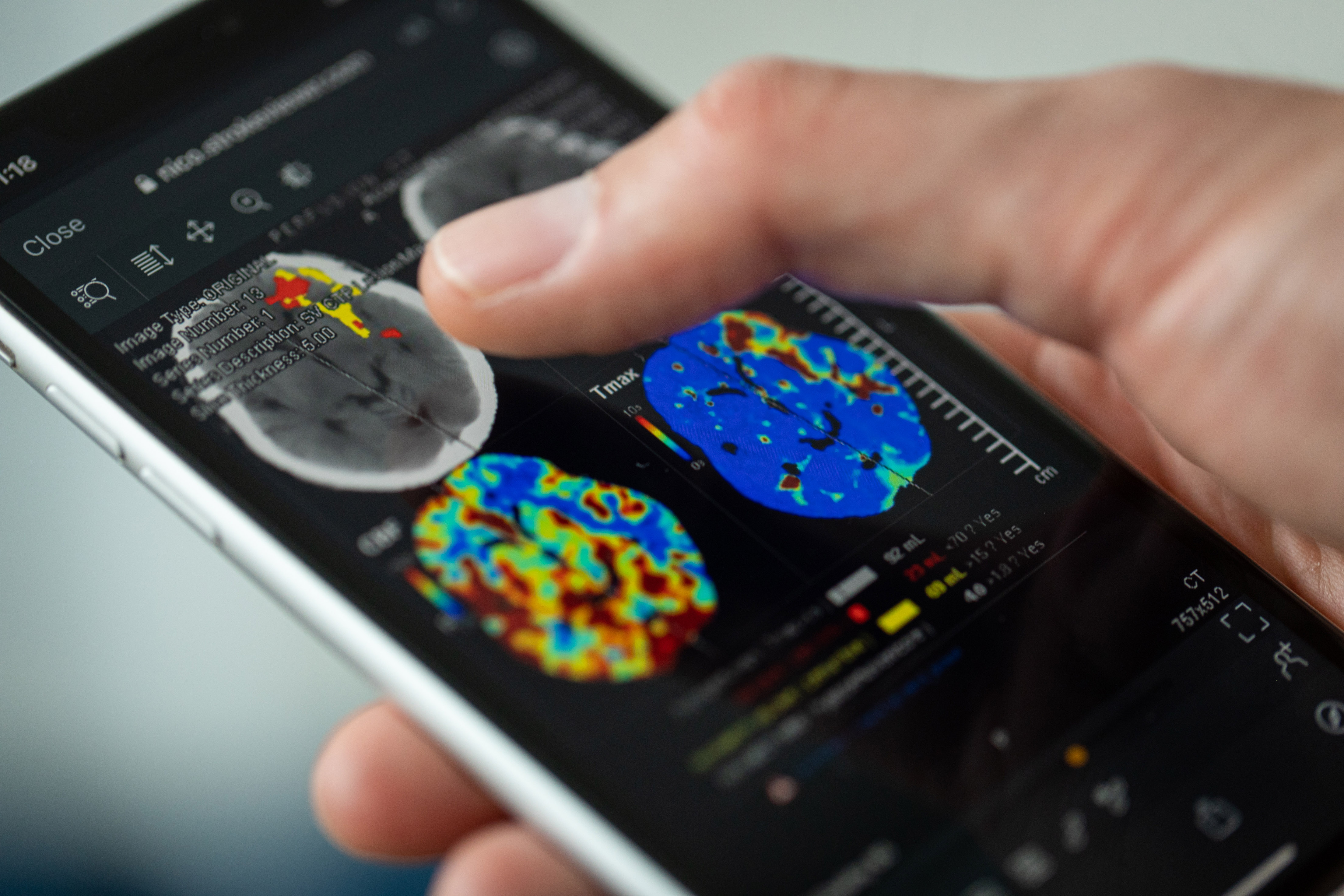Philips’ Partnership Accelerates Stroke Diagnosis and Treatment
 Royal Philips has announced a strategic partnership agreement with NICO.LAB that will enhance Philips’ stroke care solutions with advanced artificial intelligence and cloud capabilities to strengthen care collaboration and optimize decision making at each step.
Royal Philips has announced a strategic partnership agreement with NICO.LAB that will enhance Philips’ stroke care solutions with advanced artificial intelligence and cloud capabilities to strengthen care collaboration and optimize decision making at each step.
Together with the recently expanded stroke capabilities of Philips Image Guided Therapy System, Azurion, this new partnership advances Philips’ commitment to improving outcomes for people who suffer a stroke. Philips is connecting information, technologies and people across the stroke care pathway, enabling care teams to work quickly and act decisively – a key factor in providing the best patient treatment.
Physicians in an emergency stroke setting are fighting the clock and are under intense pressure to make optimal treatment decisions. Despite the imperative for speed, care teams currently lose valuable time due to gaps in communication, information, and access to stroke expertise.
“The biggest gain for faster treatment for stroke patients is in the workflow,” said Professor Wim van Zwam, MD, Interventional Radiologist at Maastricht University Medical Center. “Reducing the throughput time of patients requires faster exchange of critical patient information, such as high-quality medical images, between hospitals and departments, in order to decide on the best patient treatment.”
Philips’ partnership with NICO.LAB brings a cloud-based, end-to-end artificial intelligence (AI) based stroke triage and management solution – StrokeViewer – that aims to improve patient outcome by optimizing the stroke workflow. It analyzes CT scan data with AI, and automatically detects large vessel occlusion (LVO) and its location. It then shares this analysis with physicians at both primary stroke centers (general radiologists and neurologist) and intervention centers (stroke neurologists, interventional neurologists, and radiologists) where the patient is eventually treated.
Recent Philips innovations that optimize the imaging capabilities of its Image Guided Therapy Angiography Suite with new 3D visualization and measurement tool – SmartCT – aim to get patients into treatment quickly.
Philips is also pioneering a new approach to speed up stroke treatment for early time-window stroke patients (less than six hours after stroke onset) by bypassing diagnostic CT or MR scans at certain types of stroke center. Earlier today, Philips announced the first patient being enrolled in the WE-TRUST study - a global multi-center randomized clinical trial to assess the impact of a Direct to Angio Suite workflow focusing on improving care for stroke patients. This approach can allow for quick patient routing, and with the new SmartCT imaging capabilities in Philips’ Azurion Angio Suite, further diagnosis can be done to confirm eligibility for treatment.
“By expanding our offerings in stroke care we are able to provide an integrated portfolio of intelligent solutions across the full stroke care pathway, giving clinicians the right information during every critical step,” said Bert van Meurs, Chief Business Leader for Image Guided Therapy at Philips. “With our integrated portfolio, and by using validated AI and cloud technologies, we can facilitate collaborative care to optimize the stroke care pathway from diagnosis to treatment.”
Philips’ stroke portfolio includes solutions for stroke monitoring and communication in ambulances, tele-stroke patient assessment, diagnostic imaging and analysis, image-guided therapy, neurological monitoring and assessment, and more.
